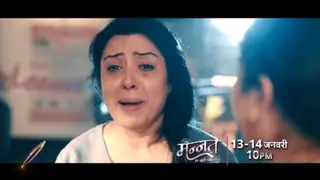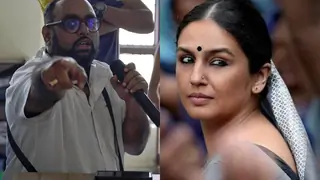Originally posted by: asmitamohanty
I feel along with bigamy, another key reason why Aditya Tripathi faced more criticism than Anirudh Bose lies in how each treated the FL after marriage initially.
In case of Aditya Tripathi, his behavior toward Imlie was often harsh, irritable, and at times misdirected. Coupled with the bigamy issue, it created friction with the audience — after all, Imlie was the bigger victim in that scenario.
While Anirudh Bose In contrast, Anirudh’s relationship in the beginning with Jhanak was defined by support, softness, protection, and sympathy. Even when forced into complex situations, he never emotionally hurt her in the beginning.This made him far more palatable to audiences despite his own morally gray choices.
But then what I guess is important to note is both are very very different as individual..Despite the differences in their actions, both characters were built on unique psychological frameworks.
Aditya’s defining trait was his obsession with truth and honesty. His career as a journalist was a testament to this — he took pride in protecting facts and revealing the truth at all costs.
When confronted with the biggest truth of his life, he struggled immensely. He had to lie repeatedly, which clashed with his core values, leading to mounting frustration and self-loathing.
Imlie, unintentionally, became a mirror of his own failings, which fueled his angry outbursts toward her.
Importantly, he later recognized his misdirected behavior and sought to make amends, highlighting his capacity for reflection and growth.
Aditya was not inherently cruel — he was trapped between his professional ethics, personal pride, and emotional vulnerability. His flaws were rooted in his ideals, and his mistakes were often a product of his inability to reconcile his inner turmoil.
Anirudh, in contrast, was a pragmatic, outcome-oriented man.He was comfortable with lying, manipulating, or using coaxing tactics, provided his actions served a greater purpose.
Unlike Aditya, he followed the path of least resistance, avoiding direct confrontation with every complexity.His pragmatic approach made his forced marriage situation less morally troubling initially. He navigated it without guilt, because his actions were aligned with his immediate goals.
Only when deep emotional attachment developed did he begin to assign meaning to rituals, marriage, and commitment — illustrating his emotional growth in response to personal stakes rather than moral imperatives.Anirudh’s choices were guided by practicality and emotional intelligence, rather than a rigid moral code, which made his flaws easier for viewers to accept may be......I am not sure though...



































879